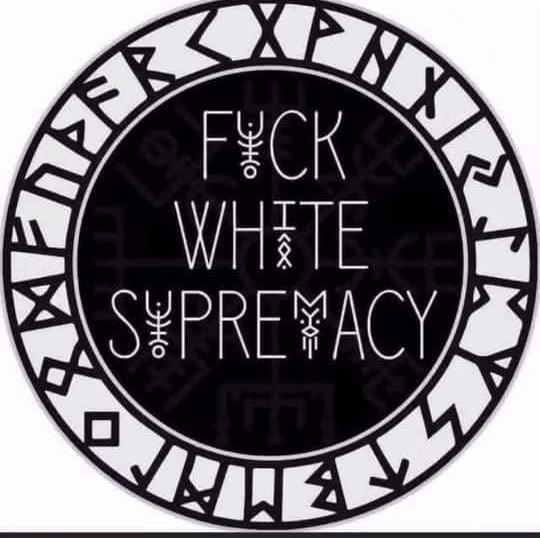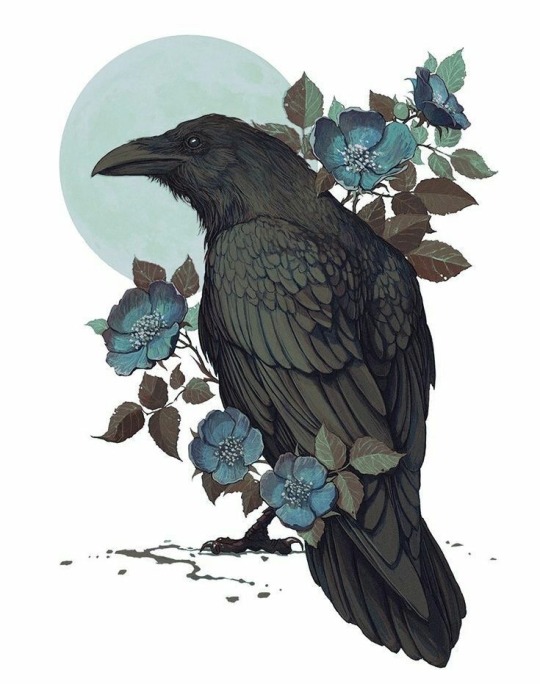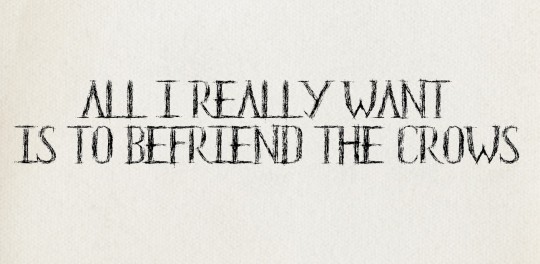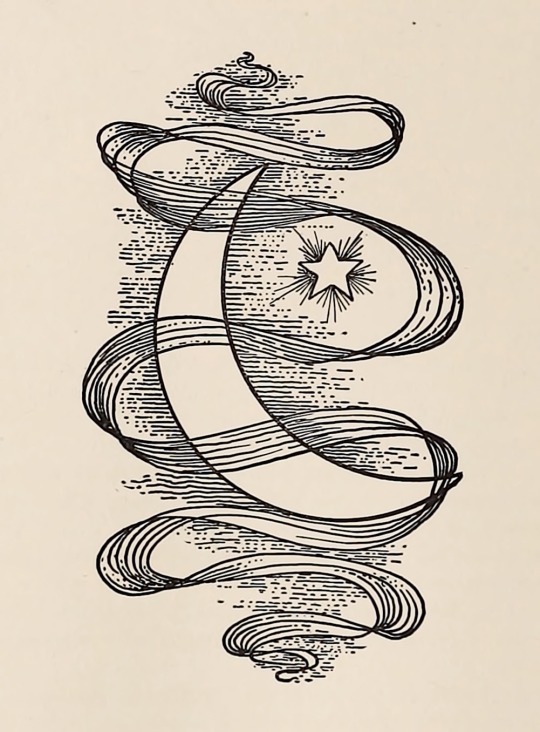Text

I’ll drink to that. 🥃
I'm pouring out a cold one for the witches who wasted precious time, energy, and resources on things for their crafts that they found neither enjoyment nor gratification in because someone told them they had to in order to practice witchcraft.
396 notes
·
View notes
Text
just seen someone’s tattoo that i guess was supposed to say memento mori in greek alphabet except it was spelled ΜΣΜΣΠΤΘ ΜΘRΦ = msmspth mthrph (?) and i am obsessed like yes girl smsjxhwbesk to you too who needs words❤️
47K notes
·
View notes
Text
Goodbye, Loki…
It’s not really goodbye but rather “until next time”. Loki has found my learnings satisfactory and has moved on to bring a little chaos into someone else’s life. I’ll miss him dearly. He was very attached to my niece and I wouldn’t be surprised if he came to check on her from time to time (he calls her “Chaos Child”).
Thank you for teaching me how to allow a little chaos and mischief into my life, Loki. Thank you for all the laughs and for reminding me to “live a little and party” every once in awhile. You’re the best.
Skål, Loki! Until next we meet. The Fireball Whiskey is on me…

1 note
·
View note
Text
Good-bye, Epona
With the sudden arrival of Badb Catha back into my life, I must say good-bye (for now) to Epona. We have not been very connected for almost the entirety of our year together. I’m not removing Epona from my life, only setting aside our time for when Epona is truly ready to work with me. With The Morrigan, Nemain, Airmed, Loki and now Badb Catha, I’m a little overwhelmed with deities. Epona seems to be very understanding. I’ll not stop honoring her, in fact, I will make sure to honor her on Eponalia. It’s just right now is not our time together. But one day it will be.
1 note
·
View note
Text
To the Solar Apollo
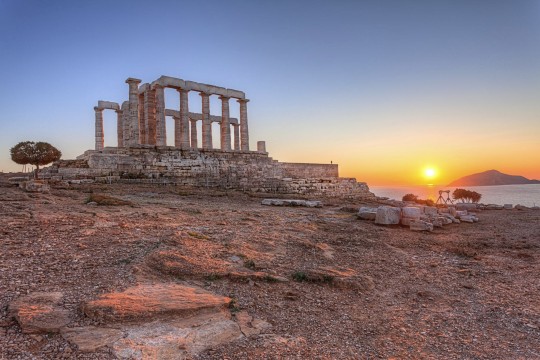
☼ Introduction
────────────────────
Apollo’s relationship to the sun is something people often talk about. There's no shortage of those who come into polytheistic circles believing that he is the god who oversees the sun and, similarly, there’s no shortage of people who will quickly tell them, “Apollo is NOT the god of the sun, just of light”. However, as with most things in the realm of ancient religions, it's not so simple. This post isn’t to take away from Helios and Sol and their roles in their respective cultures, just to explore the nuance of Apollo’s, who, throughout ancient history, actually had quite a lot to do with the sun. By no means is “sun god” Apollo’s original role but it is one that was given to him at varying points and it’s not invalid or wrong for people to worship him in that capacity now.
Note: For simplicity’s sake, I’m going to call Apollo by the Latin form of his name all the way through even when referring to Greek views and worship of him. This is just because it tends to be more recognizable and if I had switched back and forth all throughout the post, it would’ve been messy.
☼ All Roads Do Not, In Fact, Lead to Rome
────────────────────
One common mark against associating Apollo with the sun is a belief that it’s all a later Roman invention and has no basis in a more “purely” Greek religious point of view, and…. let's unpack that. For one, it’s just not true. The next section will cover more of the Greek origins for a solar Apollo but that association was regularly occurring in the Greek world when Apollo had only just barely been meaningfully introduced into Roman religion, in about the 5th century BCE. Secondly, that view somehow implies that 1) a ‘pure’ form of Greek religion even existed, which it didn’t, and 2) that changes to Greek religions derived from outside influence are invalid within the realm of Hellenism, which they aren’t. Greek religion is an entity that spanned multiple continents, had regional variations in mythology as well as in practical cult traditions/worship, and was constantly changing over time in so many ways while taking on both internal and external influences.
Within Roman religious tradition, Apollo wasn’t associated with the sun and Sol until around 500 years after it began occurring in various Greek traditions (with Helios amongst the Greeks). It's also worth noting that identifications between Sol (or Helios) and Apollo within Rome tend to be very loose, the more strict view of “Apollo IS Helios and Helios IS Apollo” is much more prominent amongst Greek writers. The closest I can actually find in Roman literature is from looking at the works of Ovid where he constantly calls both Apollo and Helios/Sol as simply “Phoebus” and gives them both as the twin brother of Diana but he stops short of explicitly equating them. There are many mentions that Roman writers in the 3rd century CE did explicitly make that equation but I personally couldn’t find any direct sources for that aside from modern scholars saying “it was common in Latin literature during this period”. There are also floor mosaics from the 2nd century CE which depict Apollo in manners which were otherwise typically used for Helios or Sol, such as the one below (from Roman Tunisia), where Apollo is shown with a solar crown, a motif that specifically refers to the physical sun in the iconography of this period.
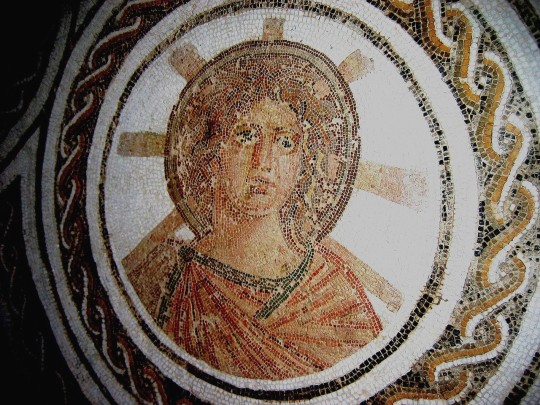
☼ It's All (5th Century BCE) Greek to Me
────────────────────
One of the earliest mentions that gives Apollo the role of the literal sun in Greece is in Aeschylus’ “Bassarai”, a play written sometime during his life (525-456BCE), in which he describes the underworld as a place where Apollo cannot shine and therefore, is a sun-less place. In a play by Euripides that was first performed in about 420 BCE in Athens, Apollo is said to be another name for the sun god Helios. This play, entitled “Phaethon” is a take on the myth of…well..Phaethon, and in it, the character of Clymene (Phaethon’s mother, a brief consort of Helios) says “Helios, who men also call Apollo'' in a speech lamenting the death of her son. Also around this time period, Oenopides of Chios, an ancient Greek geometer and astronomer, gives Apollo the epithet of “Loxias” and then goes on to explain that it refers to his role in the sun’s path across the sky (it's usually an epithet related to Apollo's oracular function, Oenepides connects it to the elliptical path of the sun) and Philochorus, an Athenian historian with a strong connection to Athenian priesthoods, wrote that the men of his time consider Helios and Apollo to be one and the same. The 3rd century BCE Greek poet Callimachus takes time in his work to admonish people who consider Apollo and Helios to be separate deities and goes on to call Apollo as the one who rules over day (as the Sun). Pausanias, a Greek historian from the 2nd century CE, wrote about meeting a man from Sidon who considered Apollo and Helios to be the same and Pausanias goes on to say that this was the common view of Greeks (Sidon was originally a Pheonician city in what is now Lebanon, it had been under the Hellenistic Greek governance of Alexander the Great and was under Roman governance at the time of Pausanias). Finally, circling back to the 5th & 4th centuries BCE, there are also Athenian civic documents in which Helios and Apollo are equated in the oaths taken by those entering into public office.
These are just notable examples, if I were to list them all then this post would go on forever. This all shows that a solar Apollo was not merely an artistic or philosophical creation, it also held prominence amongst common people and in the realms of cult and civic traditions.
☼ A Quick Lil' Timeline
────────────────────
Just as a summary of the “who, what, where, when” of the ancient sources mentioned thus far:
525-455 BCE — Aeschylus' “Bassarai” [Greek, Athens*]
500-300 BCE — Athenian Civic Oaths [Greek, Athens]
490-420 BCE — Oenopides of Chios [Greek, Island of Chios]
420 BCE — Euripides’ “Phaethon” [Greek, Athens]
310-240 BCE — Callimachus [Greek, Alexandria]
340-261 BCE — Philochorus [Greek, Athens]
43 BCE-18 CE — Ovid [Roman]
110-180 CE — Pausanias [Greek, Lydia*]
100-200 CE — Roman Floor Mosaics [Roman*]
*Notes: Aeschylus himself wasn’t Athenian but was from elsewhere in Attica, his plays were presented in Athens which is why I listed it but I can’t find anything saying he was actually based there and he also traveled elsewhere such as to Sicily. As for Pausanias, he was born in Lydia to a Greek family but he spent his life traveling around the Roman Empire. Finally, the floor mosaics are from varying places in the Roman empire including from Tunisia and Turkey.
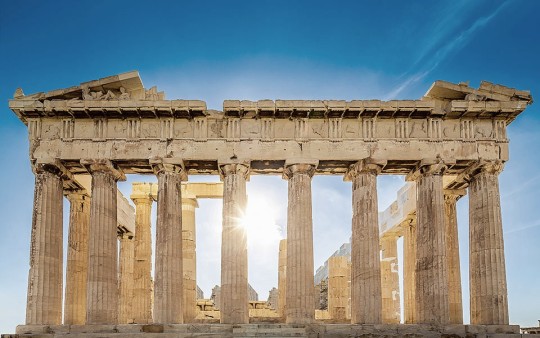
☼ The Helios of it All
────────────────────
So, what does this all actually mean for Helios and Sol? Well, in my opinion, it doesn’t mean much of anything. The viewpoint that Helios (or Sol, for the Romans) is equivalent to Apollo is indeed very real and valid but so is the viewpoint that they’re entirely separate. They’re equally attested, equally “correct”, and neither crosses out the existence of the other. If you would like to worship Apollo as the physical sun, then go for it. It's not UPG or modern invention, it’s a very traditional take. And, if you don’t wish to view Apollo as the sun but instead view Helios (again, or Sol) as a distinct being, you’re also correct! My main goal with this post was simply to highlight the historical basis for a solar Apollo and give nuance to the commonly-repeated “bUt aPoLLo Is’Nt tHe sUn”. In my own personal practice, Apollo isn't the literal Sun either, but I don’t force that view onto others who do honor him in that context.
Sources & Further Reading:
☼ Theoi's Apollon page, this site discusses his sun symbolism under the "Encyclopedia" section.
☼ “Apollo and the Sun-God in Ovid” by Joseph E. Fontenrose. It's a very old article however, not much about Ovid's work has changed for a while. This author is critical of an Ovid Apollo-Sol equation, but he does perfectly lay out how the language is used for them both in Ovid and that it does hint at a possible equation. In that same vein, his article entitled "Apollo and Sol in the Latin Poetry of the First Century B.C." also deals with this. Both are on JSTOR.
☼ "Early Identifications of Apollo with the Physical Sun in Ancient Greece" by Dr Tomislav Bilic, a researcher and Chair of Numismatics with the Archaeological Museum of Zagreb. If you're someone who’s interested in a way more comprehensive overview of the Greek solar Apollo and scholarship on the subject then this is for you, friendo.
☼ For translations of some of the primary texts, I used Loeb and/or Perseus.
44 notes
·
View notes
Text
My Deities & Practice
Deities
As of January 2022, I am currently working with:
Nemain
Badb Catha
Airmed
Eponâ
Loki
As of September 2022, I am currently working with:
Badb Catha
Nemain
Airmed
My patron is An Mórrígan.
Practice
I call myself an Irish Pagan but recently I have been working on Norse Paganism. So I guess, technically I am an Irish-Norse Pagan. I do practice witchcraft as well. I don’t have a specific form of witchcraft that I practice but I’m pretty adept at Divination (including tarot & pendulum work), Warding, Defensive Magick, and Clairvoyance/Clairaudience. I am by no means a professional. I’m only in my third year of practice. I have been involved in the spiritual realm since I was 15, however.
Disclaimer
I love learning new things. I’m always open to new experiences. But I want to make it very clear that I respect and adhere to close practices and do not tolerate those who disrespect it. I do not practice any closed practices and have no authority on them.
0 notes
Text
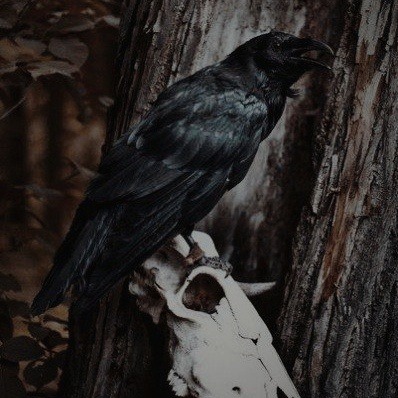


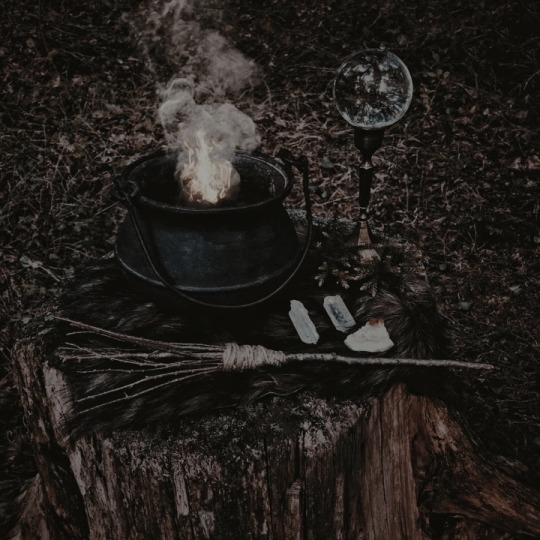
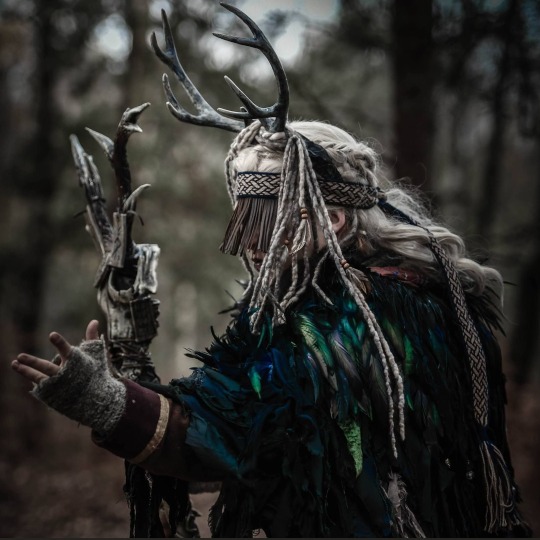
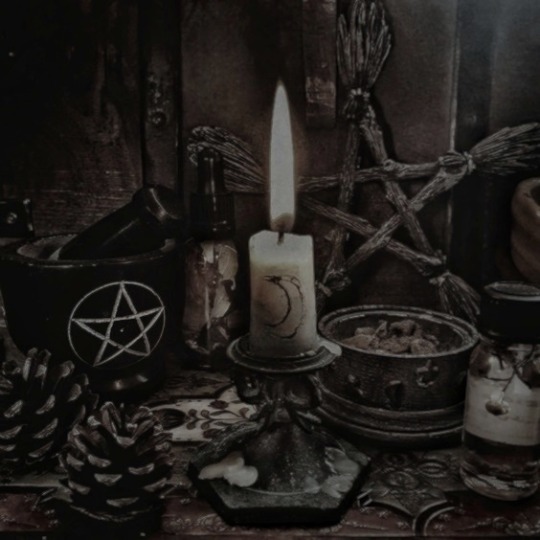

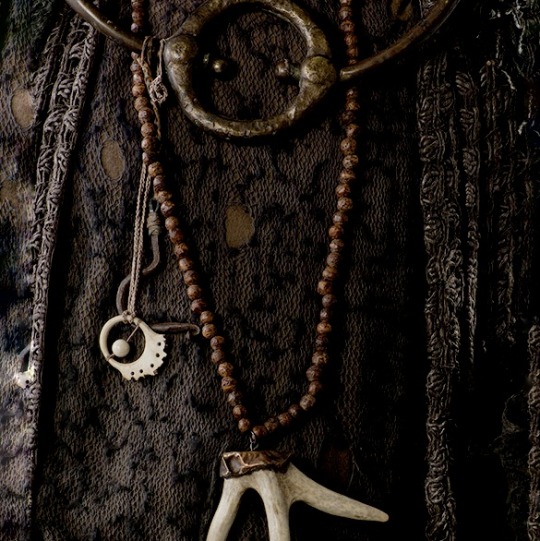

𝖙𝖍𝖊 𝖒𝖔𝖗𝖗𝖎𝖌𝖆𝖓 ; 𝖌𝖔𝖉𝖉𝖊𝖘𝖘 𝖔𝖋 𝖜𝖆𝖗, 𝖉𝖊𝖆𝖙𝖍 & 𝖜𝖎𝖙𝖈𝖍𝖈𝖗𝖆𝖋𝖙
[please reblog or like if you saved]
#the morrigan#the great queen#the raven queen#the phantom queen#the nightmare queen#irish goddesses#celtic goddesses
1K notes
·
View notes
Text
Oh, hi!
It’s been awhile. Thought I’d jump back in and have fun with Tumblr again. Hope you’re all well.
0 notes
Photo
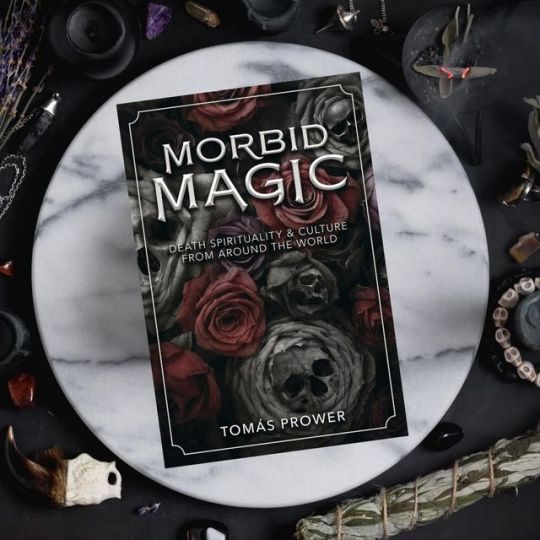
I received a copy of this book from NetGalley in exchange for an honest review.
I just finished reading Morbid Magic: Death Spirituality and Culture from Around the World by Tomás Prower (release date September 8, 2019) and I have to say I am thoroughly intrigued. The book is a world tour of death rituals and rites around the world, with each section focusing on a specific location on Earth, from the Middle East to the Americas. Each section gives a brief snippet of how each culture views death and handles funerals, a brief description of the deities associated with death, a death-related takeaway, and finishes with experiences from those practicing within those cultures. There is not a lot of magic in this book, which was disappointing, but learning about how other cultures handle and view death and funeral rites was fascinating to me. You can read my full review on my blog now. Link in bio.
#morbidmagic #witchcraft #witch #hedgewitch #witchy #magick #magic #deathmagic #deathmagick #funeralrites #wicca #wiccan #occult #death #pagan #neopagan #goth #witchesofinstagram #netgalley #bookreview #paganbookreview #ilovereading #ilovebooks #witchbook #witchybooks
https://www.instagram.com/p/B0B2N_Jl5Fk/?igshid=zk4924y22zv0
8 notes
·
View notes
Text
Lets Talk about the Sight…

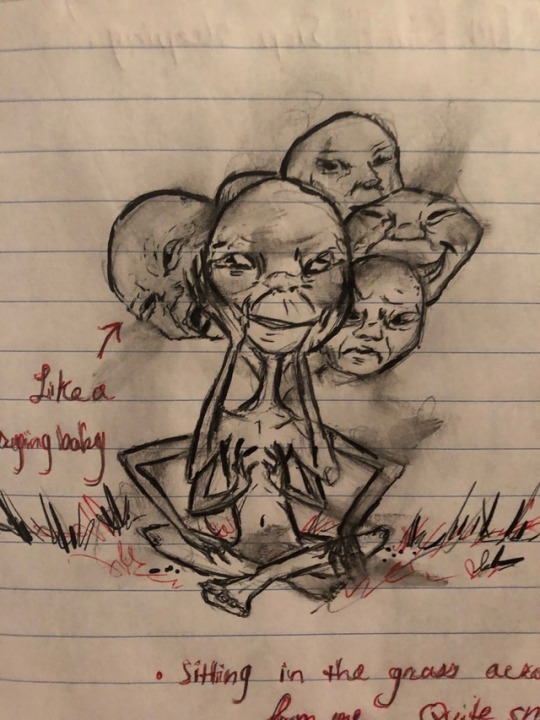
Having “eyes to see”, does not mean that you will see clearly. It doesn’t make the doubts go away. I used to think that, maybe, if I could see then I could be more certain of my reality; that the world as I breath it is real. I was wrong.
In fact, just the opposite happened.
All gifts can be confusing, and “open eyes” are not an exception. They are the showpiece of confusion. And just like any other gift, it is as much a curse as it is a blessing. The occasional doubts that sometimes plague the late hours become more frequent and more debilitating.
How do you tell what’s real and what’s not? You ask yourself if any of it is real or if it’s all just your imagination. Or maybe you’re only conjuring up what you wish to see.
There are moments that are so clear to you, that any other truth would be senseless- absurd. There are times of intense and unrelenting fogginess where you are neither here nor there. Lastly, there are the moments of normality, where you question if you ever saw anything at all.
I can’t speak for anyone else. I can only speak through my personal experiences. But if you’re anything like me-
Your depression will be worse.
Your anxiety will be worse.
Derealization is a frequent visitor.
All that being said. Skepticism is not a bad thing. Skepticism is a very important tool when dealing with the Other and things less concretely bound by our limitations. However, the manners of thinking that come from compulsive anxiety are not true skepticism.
They’re a biaism against the self.
While you shouldn’t assume all that you see to be true, it can also be injurious to assume it all to be false. You will find that doing so closes yourself off from many potentially beautiful and amazing experiences. True, it can be terrifying. Truly terrifying. But I wouldn’t trade it for the world.
It’s also good to understand that sometimes the mode of sight will change. Liminality by nature and etymologically is not a concrete thing. At least not in a way we are able to fully grasp. Remember, our eyes are still physical. We are organic. We are biology. We have limits. Having the true sight does not necessarily mean that what you see is something in its completeness. It does not mean you can see everything. It simply means that you can see more.
Think a moment on colors. Every color you can think of, every spectrum of light, can be reduced to one shade of another that you know. But what of the colors you can’t think of? What about the colors you’ve never seen, never heard of? The mantas shrimp has nine more color receptors than we do. Can you picture that they see? What it must look like? If a mantas shrimp could talk, do you think they could describe it? Biologically we can’t see what they can. No matter how we break it down, no matter what adjectives we use, no matter what the artists paint, the musicians sing, we can not see through their eyes. We can get the notion, but we cannot comprehend the same way. We have limits. And- if we were to talk to this shrimp, and they WERE to describe it, would they use other shrimp-y things that we humans haven’t knowledge of? No, Of course not. That would do no good. The Mantas Shrimp would have to describe these things by using concepts that are familiar to us.
It’s in this way that we open discourse with the other. Because of our limitations, the “Others” would also have to use ways by which we are individually familiar.
Perhaps this is.. with aliens?
Perhaps this is with.. poltergeist? Maybe not…and yet- maybe so?
Perhaps this is with literal symbolism? With doors, with string, and the spiders web.
This is part of the reason that divination is so effective. By using physical representation, we can interpret the divine or simple messages.
Take biblomancy for instance. Bibliomancy, if you’re unaware, is the act of divination by flipping through a book. The message is communicated by the “Others” essentially by quoting what is available to them and us. If the quoted verse is Matthew 27:5, “And he [Judas] cast down the pieces of silver in the temple, and departed, and went and hanged himself”, we wouldn’t usually (hopefully) receive it literally. A more likely interpretation would be that in order to achieve one’s goals, that individual must cast off their limitations (perhaps the silver is represented as something regarded as important by many but in this case prevents the growth of the individual) and die to themselves to grow back stronger. It could also be interpreted in the same way as the tarot’s Hanged Man. The point is, that when engaging with the other, the place of understanding met must be a place that those involved can all understand.
Many times the sight is like this. If you are seeing things related to something you have put a lot of time or interest in, while you shouldn’t assume it to be true, that doesn’t necessarily make what you see invalid. Perhaps it’s just the best way that being saw fit to approach you- for better or worse; trickery or trustworthy.
If you see a rabbit in a waistcoat, if you see an alien, if you see anything that isn’t necessarily represented in folklore, don’t immediately discredit your experience. Study. Read the folklore, pay attention to what what you saw does or says. Does it sound like something you can relate it too? Or does it sound like you? Because of our limitations- we sometimes interpret things the only way we can. Use discernment.
430 notes
·
View notes
Photo
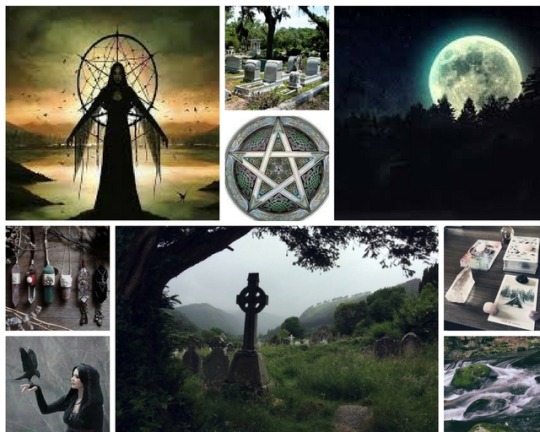
Eclectic Witch and the Morrigan Devotee
“Listen child, lest you forget, I shall watch you hidden in shadows, I shall challenge you for your understanding of self. And when the time is right, I shall take you with me for I am the Morrigan, I am the Raven Queen”
19 notes
·
View notes
Photo

The Morrígan, Irish Goddess of war, sovereignty, death, and sexuality. Her name means “Phantom Queen”. She incites warriors to battle, carries the souls of the departed to the next life, safeguards justice, and empowers those she favors to pursue their destinies.
Strongly associated with prophecy, she often appears in the old stories to predict or facilitate the hero’s journey, and may be one of the inspirations for our modern image of the banshee, who mourns the dead before they have passed. Often she is depicted not as a singular Goddess but as a trio of sisters, though the names in the triad change depending on the story. They include Badb Catha, Macha, Nemain, Anand, Morrígan, and Fea.
It’s important to note that The Morrígan cannot be considered a “triple goddess” in the Maiden, Mother, Crone sense. Beyond the fact that this is a very modern concept, none of The Morrígan’s aspects is fixed in one guise or theme. Badb appears in some stories as a hag, and at other times as a beautiful woman. While Macha is associated with fertility and in one story dies in childbirth after racing horses, she is also a battle Goddess and psychopomp, rather than a standard mother figure. More than anything, The Morrígan should be seen as a shape shifter, capable of changing her form to that of a beautiful lady or a hideous old woman, as well as a wolf, crow/raven, cow, and eel.
1K notes
·
View notes
Text
The Morrigan: Associations
Names - Morrigan, Mórrígan, Morrigu, Na Morrigna (meanings may be: Great Queen, Phantom Queen, Death Queen, Nightmare Queen)
Attributes - War, death, blood, sovereignty, land, life, battle, prophecy, power, lust, magic, change, fate, courage, revenge, cattle-stealing, violence, fury, witchcraft, glory, strategy, victory
Places - Battlefields, rivers, forests
Moon - Waning moon, new moon
Planet - Pluto
Seasons - Winter, fall
Celebrations - Samhain, Mabon
Elements - Fire, water
Weapons - Spear, sword, magic, shapeshifting
Animals - Crow, raven, wolf, cow, eel, horse, crane, fish, snake
Herbs - Hawthorn, mugworth, belladonna, sage, cinnamon, violets, blackthorn, asafoetida, reed, honeysuckle
Trees - Juniper, aspen, cherry, oak, willow
Crystals - Bloodstone, obsidian, onyx, agate, ruby, amethyst, clear quartz, tiger eye
Colours - Black, red, purple, blue, white
Tarot cards - Death, the hermit, force, the moon
Incenses - Dragon blood, orange, cinnamon
Other things - Skulls, bones, blood, black candles, feathers, hag stones, knives, leather
Offerings - Red wine, meat, black coffee, dark chocolate, cherries, oranges, pomegranates
1K notes
·
View notes
